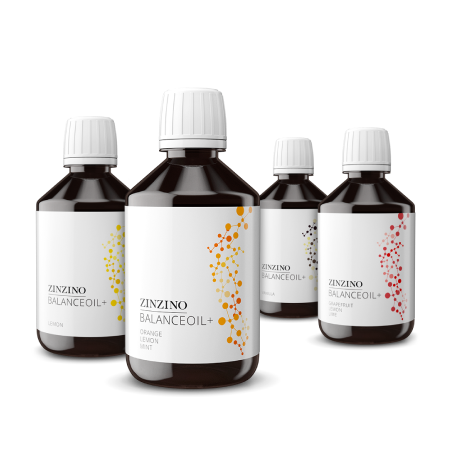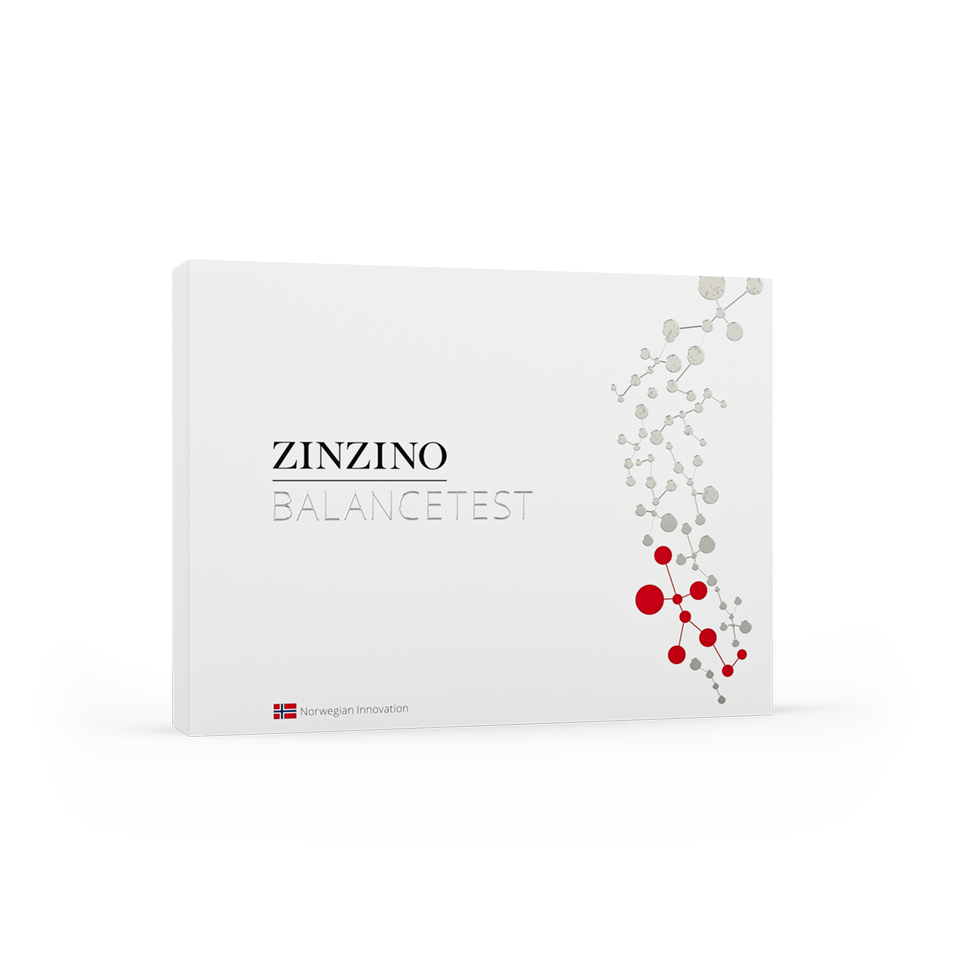Sven & Audrey Goebel
Zinzino Independent Partner
Welcome! I'm your wellness consultant, here to guide you on your health journey. Let me know what you need!
Polyphenol Omega-3 Balance health benefits

The amazing health benefits of a Polyphenol Omega-3 Balance food supplement. We don’t always turn to nutrition to fight health problems, but what we put on our plate goes a long way to maintaining our wellbeing. And there’s one incredibly important nutrient that contributes to the health of both your body and mind: Omega-3.
Yes, that essential acid found in a range of fatty fish.
Our bodies can’t make these essential acids and most people aren’t consuming enough, which is why we need a two-pronged approach that incorporates an Omega-3 Polyphenol-rich supplement.
The importance of EPA & DHA Omega-3s.
The European Food Safety Authority (EFSA) has a list of approved health claims of Omega-3s, Vitamin D, and olive oil. DHA and EPA are two important types of Omega-3s, both found in BalanceOil+.
DHA helps to maintain a normal brain function1 and supports vision2, with a daily intake of 250mg. EPA and DHA contribute to normal heart function, with a daily dose of 250mg3. Normal blood pressure is maintained with 3g per day4, as well as blood triglyceride levels with 2g5.
For expecting Mothers, 450mg per day of DHA is advantageous for normal brain development of the fetus (and breastfed infants)1 and 100mg a day can contribute to the normal vision development up to 12 months of age2.
From cardiovascular health and cognitive function, vision and fetus support, Omega-3 fatty acids are essential for all ages.
For our BalanceOil+ product, we derive the Omega-3 fatty acids EPA and DHA from the highest-integrity sources of wild sardines, anchovies, and mackerel. The fish oils remain unprocessed, subject to a cleaning process as all fish oils do.
The benefits of Polyphenols + Omega-3s.
High-polyphenol olive oil aids in the absorption of Omega-3s. Olive oil polyphenols are also strong antioxidants that offer a range of benefits, including protecting blood lipids from oxidative stress6.
It’s critical to choose a product that uses cold-pressed, extra virgin olive oil. We source a Picual type that contains higher amounts of polyphenol and pre-harvest it to derive an even greater amount. The extra virgin process gives us a perfect oil, with all the contents intact.
Zinzino’s scientists formulated BalanceOil+ to combine Omega-3 with the correct amount of olive oil that provides Omega-9 and antioxidants in high amounts.
The polyphenol Omega-3 combination makes it possible to safely adjust and maintain the Omega-3 in your body to achieve an Omega-6:3 ideal Balance of 3:1 or below in 120 days.
The Vitamin D component and your immune system.
Alongside the list of Omega-3 benefits, BalanceOil’s Vitamin D dose also supports a normal immune system7, muscle function8, bone structure9, cell division10, and blood calcium levels11. We use a natural Vitamin D, made from lanolin – a fat found in sheep’s wool that, when activated by UV light, is comparable to the process of sunlight-producing Vitamin D on the skin.
BalanceOil+ is as close to nature as it gets. It’s a premium blend of oils from wild sources that helps you harmonize your body, with health benefits from head to toe. There’s nothing quite like it anywhere else.
The catch of the day.
Follow a two-pronged approach, of good nutrition and an Omega-3 Polyphenol supplement, to achieve healthy Omega-3 levels. Consume a healthy Mediterranean diet with minimal processed foods and use BalanceOil+ to harmonize your ratio closer to 3:1.
To find out what your current reading is, use Zinzino’s Balance Test, then use Balance products to gently adjust your ratio, within 120 days.
It’s never been easier to re-Balance your world.
* These statements have not been evaluated by the Food and Drug Administration. This product is not intended to diagnose, treat, cure, or prevent any disease.
1. DHA contributes to the maintenance of normal brain
DHA trägt zur Erhaltung einer normalen Hirnfunktion bei. Die Angabe darf nur für Lebensmittel verwendet werden, die mindestens 40 mg DHA pro 100 g und pro 100 kcal enthalten. Um gesundheitsbezogene Angaben machen zu können, muss der Verbraucher die Information erhalten, dass sich die positive Wirkung bei einer Tagesdosis von 250 mg EPA und DHA einstellt. Die Aufnahme von Docosahexaensäure (DHA) durch die Mutter trägt zur normalen Hirnentwicklung des Fötus und des Säuglings bei. Schwangere und stillende Frauen müssen informiert werden, dass sich die positive Wirkung bei einer Tagesdosis von 200 mg DHA zusätzlich zu der empfohlenen Tagesdosis für Omega-3-Fettsäuren für Erwachsene einstellt, d. h. 250 mg DHA und EPA. Die Angabe darf nur für Lebensmittel verwendet werden, die eine Tagesdosis von mindestens 200 mg DHA enthalten.
2. DHA contributes to the maintenance of normal vision
DHA trägt zur normalen Funktion der Augen bei. Die Angabe darf nur für Lebensmittel verwendet werden, die mindestens 40 mg DHA pro 100 g und pro 100 kcal enthalten. Um gesundheitsbezogene Angaben machen zu können, muss der Verbraucher die Information erhalten, dass sich die positive Wirkung bei einer Tagesdosis von 250 mg EPA und DHA einstellt. Die Aufnahme von Docosahexaensäure (DHA) trägt bei Babys bis zu 12 Monaten zur Entwicklung eines normalen Sehvermögens bei. Der Verbraucher muss die Information erhalten, dass sich die positive Wirkung bei einer Tagesdosis von 100 mg DHA einstellt. Wenn die Angabe auf Folgenahrung verwendet wird, muss das Lebensmittel mindestens 0,3 % der gesamten Fettsäuren als DHA enthalten.
3. DHA and EPA contribute to the normal function of the heart
DHA und EPA tragen zu einer normalen Herzfunktion bei. Die Angabe darf nur für Lebensmittel verwendet werden, bei denen es sich zumindest um eine EPA- und DHA-Quelle im Sinne der Angabe Omega-3-Fettsäure-QUELLE handelt, wie im Anhang zur Verordnung (EG) Nr. 1924/2006 aufgeführt ist. Um die gesundheitsbezogene Angabe tragen zu dürfen, muss der Verbraucher die Information erhalten, dass sich die positive Wirkung bei einer Tagesdosis von 250 mg EPA und DHA einstellt.
4. DHA and EPA contribute to the maintenance of normal blood
DHA und EPA tragen zur Aufrechterhaltung normaler Triglyceridwerte im Blut bei. Die Angabe darf nur für Lebensmittel verwendet werden, die eine Tagesdosis von 2 g EPA und DHA enthalten. Um die gesundheitsbezogene Angabe tragen zu dürfen, muss der Verbraucher die Information erhalten, dass sich die positive Wirkung bei einer Tagesdosis von 2 g EPA und DHA einstellt. Wenn die Angabe auf Nahrungsergänzungsmitteln und/oder angereicherten Lebensmitteln verwendet wird, muss der Verbraucher die Information erhalten, dass die ergänzende Tagesdosis von 5 g EPA und DHA kombiniert nicht überschritten werden darf. DHA trägt zur Aufrechterhaltung normaler Triglyceridwerte im Blut bei. Die Angabe darf nur für Lebensmittel verwendet werden, die eine Tagesdosis von 2 g DHA liefern und die DHA in Kombination mit Eicosapentaensäure (EPA) enthalten. Um die gesundheitsbezogene Angabe tragen zu dürfen, muss der Verbraucher die Information erhalten, dass sich die positive Wirkung bei einer Tagesdosis von 2 g DHA einstellt. Wenn die Angabe auf Nahrungsergänzungsmitteln und/oder angereicherten Lebensmitteln verwendet wird, muss der Verbraucher die Information erhalten, dass die ergänzende Tagesdosis von 5 g EPA und DHA kombiniert nicht überschritten werden darf.
5. DHA and EPA contribute to the maintenance of normal blood pressure
DHA und EPA tragen zum Erhalt des normalen Blutdrucks bei. Die Angabe darf nur für Lebensmittel verwendet werden, die eine Tagesdosis von 3 g EPA und DHA enthalten. Um die gesundheitsbezogene Angabe tragen zu dürfen, muss der Verbraucher die Information erhalten, dass sich die positive Wirkung bei einer Tagesdosis von 3 g EPA und DHA einstellt. Wenn die Angabe auf Nahrungsergänzungsmitteln und/oder angereicherten Lebensmitteln verwendet wird, muss der Verbraucher die Information erhalten, dass die ergänzende Tagesdosis von 5 g EPA und DHA kombiniert nicht überschritten werden darf.
6. Olive oil polyphenols
Polyphenole aus Olivenöl tragen zum Schutz der Blutfette vor oxidativem Stress bei. Der Ersatz von gesättigten Fettsäuren durch ungesättigte Fettsäuren in der Ernährung trägt zur Aufrechterhaltung eines normalen Cholesterinspiegels im Blut bei. Ölsäure ist eine ungesättigte Fettsäure. Die Angabe darf nur für Olivenöl verwendet werden, das mindestens 5 mg Hydroxytyrosol und dessen Derivate (z. B. Oleuropein-Komplex und Tyrosol) pro 20 g Olivenöl enthält. Um die gesundheitsbezogene Angabe tragen zu dürfen, muss der Verbraucher die Information erhalten, dass sich die positive Wirkung bei einer Tagesdosis von 20 g Olivenöl einstellt.
7. Vitamin D contributes to immune system
Vitamin D trägt zur normalen Funktion des Immunsystems bei. Die Angabe darf nur für Lebensmittel verwendet werden, bei denen es sich zumindest um eine Vitamin-D-Quelle im Sinne der Angabe Vitamin-D-QUELLE handelt, wie im Anhang zur Verordnung (EG) Nr. 1924/2006 aufgeführt ist.
8. Vitamin D normal muscle function
Vitamin D trägt zur Erhaltung einer normalen Muskelfunktion bei. Die Angabe darf nur für Lebensmittel verwendet werden, bei denen es sich zumindest um eine Vitamin-D-Quelle im Sinne der Angabe VITAMIN-D-QUELLE handelt, wie im Anhang zur Verordnung (EG) Nr. 1924/2006 aufgeführt ist.
10. Vitamin D cell division
Vitamin D spielt eine wichtige Rolle bei der Zellteilung. Die Angabe darf nur für Lebensmittel verwendet werden, bei denen es sich zumindest um eine Vitamin-D-Quelle im Sinne der Angabe VITAMIN-D-QUELLE handelt, wie im Anhang zur Verordnung (EG) Nr. 1924/2006 aufgeführt ist.
11. Vitamin D calcium levels
Vitamin D trägt zu einem normalen Kalziumspiegel im Blut bei. Die Angabe darf nur für Lebensmittel verwendet werden, bei denen es sich zumindest um eine Vitamin-D-Quelle im Sinne der Angabe VITAMIN-D-QUELLE handelt, wie im Anhang zur Verordnung (EG) Nr. 1924/2006 aufgeführt ist.



Share this page
Or copy link